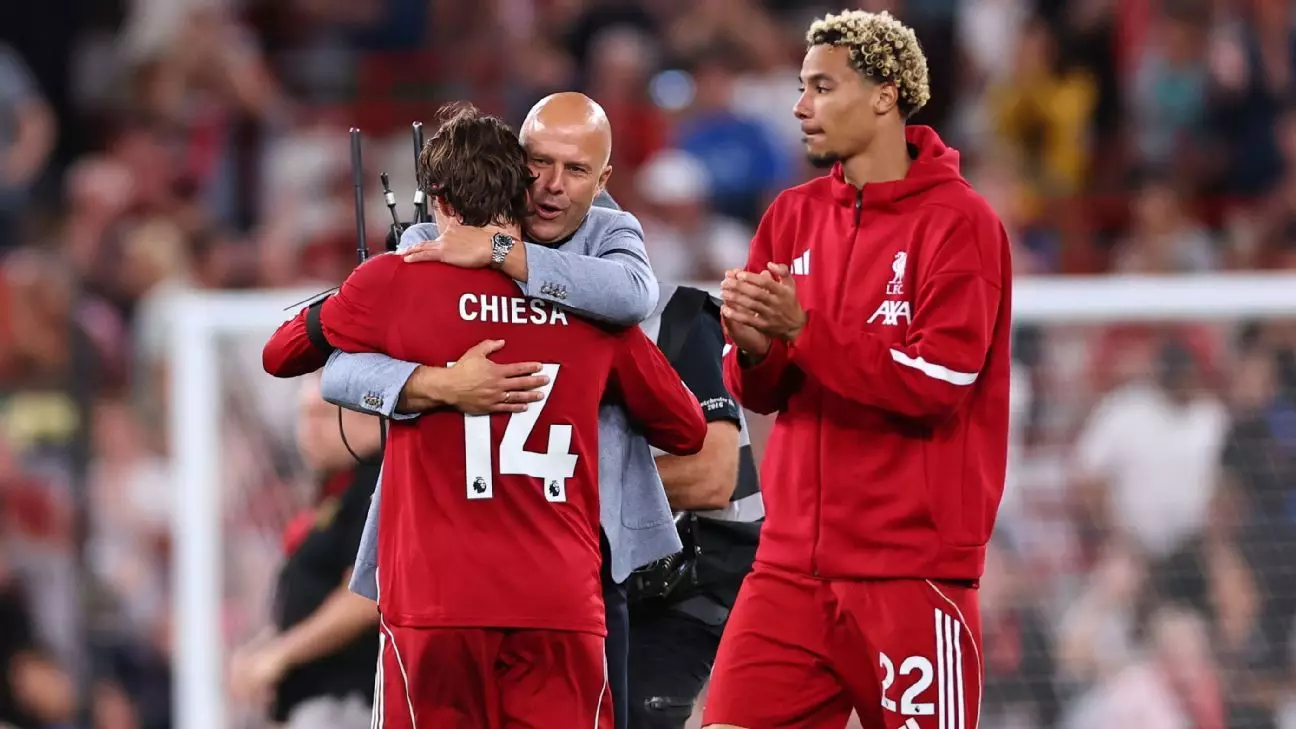Liverpool’s head coach, Arne Slot, radiates a cautious confidence regarding his squad’s future in the transfer window. While the Reds have already invested heavily this summer—exceeding £300 million—it appears they are remaining patient rather than frantic. This calculated approach reflects a broader philosophy: the club is open to capitalizing on the right opportunities rather than forcing deals. In an era where window activity often diminishes quality, Liverpool’s stance underscores a desire for strategic precision over impulsive reinforcement.
This measured outlook signals belief that the current roster is robust enough to compete effectively. Slot’s emphasis on satisfaction with the team’s current composition hints at internal confidence, tempered with the awareness that football is unpredictable. Such restraint suggests a strategic intent to avoid overhauling the squad unnecessarily, instead prioritizing targeted upgrades when genuine value or necessity arises. It also points to a recognition that the transfer market can often be a gamble, and the club is cautious about making deals solely for the sake of activity.
Balancing Ambitions with Realistic Expectations
One of the most striking elements in Slot’s commentary is his preference for a lean squad, ideally with two players per position. This philosophy promotes competition and depth without over-saturation, which can cause internal discontent. Liverpool’s recent spending, though substantial, indicates a pragmatic approach: investing in proven talents like Florian Wirtz and Hugo Ekitike that align with the club’s ambitions, yet remaining flexible enough to adapt if the right deal emerges.
The departure of key players such as Luis Díaz, Darwin Núñez, and Jarell Quansah has created gaps that demand reinforcement—particularly in attack and defense. The club’s links with players like Alexander Isak and Marc Guéhi reveal their reconnaissance into strategic acquisitions. However, Slot’s refusal to comment on specific targets underscores a block of transparency in favor of focus. This approach serves to maintain negotiation leverage while curbing any premature speculation that could destabilize internal planning or escalate player valuations.
Crucially, there is an undercurrent of patience: Liverpool will strike if and only if a player embodies the qualities Liverpool values and can genuinely improve the squad. The mention of Giovanni Leoni as an example illustrates a preference for measured, realistic additions rather than high-profile gambles. This consistency suggests Liverpool’s leadership is aligned with a long-term vision, emphasizing squad harmony and smart investments over short-term flash.
Challenges and Opportunities on the Horizon
The upcoming fixtures, including a tense match against Newcastle United, exemplify the tactical nuances of managing a squad in flux. Slot anticipates Newcastle’s renowned intensity, especially at St. James’ Park, a venue known for testing visiting teams’ resilience. The injury setbacks with Jeremie Frimpong and Conor Bradley highlight the ongoing physical challenges in maintaining squad depth. These factors underline the importance of strategic recruitment; Liverpool must be ready not only to adapt tactically but also to mitigate the impact of unforeseen absences.
The transfer saga surrounding Alexander Isak exemplifies broader market dynamics. With Newcastle keen on defending their star, Liverpool faces a test of patience and negotiation savvy. The club’s strategic restraint suggests readiness to wait for an ideal fit rather than settle for mediocrity, recognizing that the right player can influence not just performance but team morale.
Arne Slot’s leadership is characterized by equilibrium—balancing ambition with pragmatism. The club’s investing ethos demonstrates that they are aware of the fine line between strengthening and destabilizing the squad. They seem to prefer the latter, ensuring that reinforcement doesn’t come at the expense of chemistry and team spirit. This approach exemplifies a nuanced understanding that sustained success hinges on cohesion and strategic planning rather than reactive spending.
In a window where the temptation to make blockbuster signings can dominate headlines, Liverpool’s cautious yet confident stance marks a different path—one rooted in long-term vision and selective excellence. As they navigate the complexities of this transfer period, their success will depend less on the volume of new arrivals and more on the quality and timing of the moves they choose to make. Their capacity to identify genuine upgrades while maintaining squad harmony is the true test of strategic management in a highly competitive league.


Leave a Reply